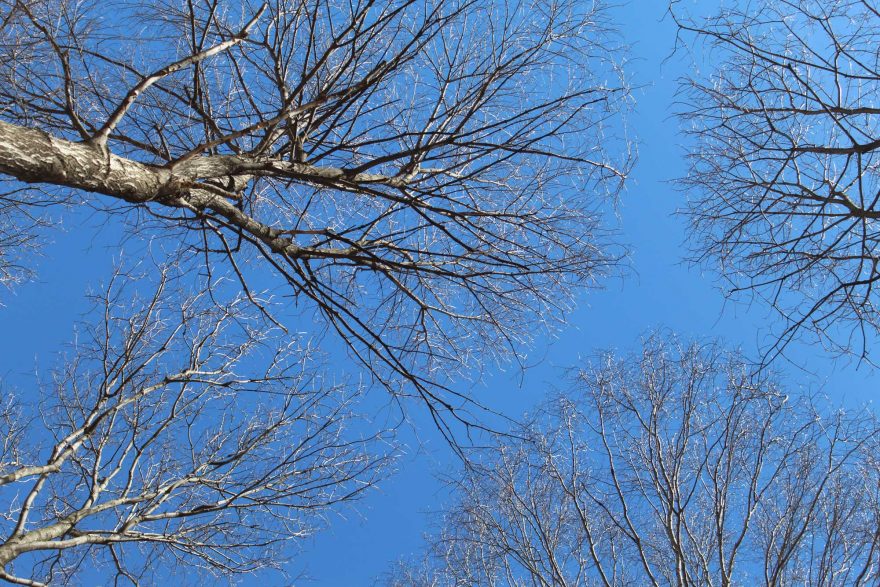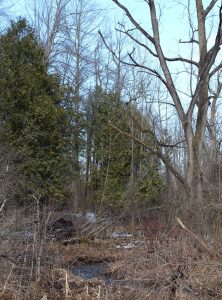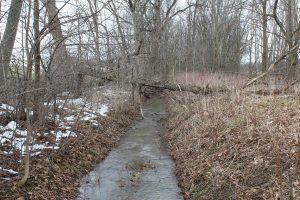
“We’ve become strangers to Nature. The best way to live longer, healthier lives is to re-wild ourselves by returning to Nature whenever we can.”
— Daniel Vitalis
It had been a hell of a work week. An annual three-day audit and employee problems had stressed me out. Walking in the door at home Friday evening, I tried not to express any frustrations in front of my wife and children, however being so amped up, it was virtually unavoidable. The frenzy continued Saturday morning, which was our day for youth basketball games.
Simply put, being a responsible adult was taking a toll on my attitude.
Finally, Sunday was upon us, my day for a weekly walk around the wooded ridges and meandering creek banks near my house. Despite the frigid temperatures and blowing snow, I had to get out of the caged atmosphere. Leaving, my wife muttered something that sounded like, “You’re crazy,” when I closed the garage door behind me.
The irony here is that these hikes are what help ground me each week, to calm my nerves and allow me to destress. They actually keep my mind from feeling crazy, especially after a tough work week.

Putting one boot in front of the other that morning and making my way through the picked corn field, I could feel the tensions ease. My stress level began falling like autumn leaves. I began to notice things more — a couple of whitetail deer, trying to ride out the weather in a thicket, jumped from their beds.
My senses began to perk up, reverting to primal instincts. Despite the howling wind and the blowing snow pelting my face, I was able to hear the barking of the squirrels announcing my presence in the forest. My breathing slowed and became deeper. My shoulders drew down away from my ears. My gait was confident, covering fallen logs and branches. I stopped to figure out the animal tracks in the snow that crossed a giant fallen oak tree.
I experience multiple benefits from walking in the woods. It allows me to clear my head and prepare for the upcoming week at work, as well as my family responsibilities. Even the folks at the New York State Department of Conservation agree with the benefits. They say this:
- Scents of the woods/waters help reduce stress
- Aids in fighting depression, especially here in colder/snowy climates with limited hours of sun
- Helps the brain work better, improving cognitive thinking, increasing focus, even in children with ADHD
- Lowers blood pressure and helps overweight people get back in shape, increases energy level
- If you walk with a group, it is great for reducing loneliness
- Boosts the immune system, accelerates recovery from surgery or illness
- Improves sleeping patterns
With a quick internet search, I discovered the Japanese practice of Shinrin-Yoku, which translates to “taking in the forest atmosphere.” Gaining popularity in the 1980s as stress associated with living in larger cities increased, the practice is focused on slowing down and taking in the sights and sounds, on not taking them for granted.

Three miles into the trek and I was headed for home. As I walked into the house, my children and wife immediately noticed the change in my mood. I was smiling. I left some of my stress on the forest floor to decay with the fallen branches and was ready for the upcoming week. It was an amazing transition.
I make it a priority to get a weekly walk in nature. There are several reasons why walking in the woods is beneficial for our health, but at the root of it all, I just enjoy getting out to nature, reverting back to a simpler time.
Joel M. Herrling is a freelance outdoors writer/photographer in central New York. He enjoys spending time in the outdoors with his family.
 Your Privacy Choices
Your Privacy Choices